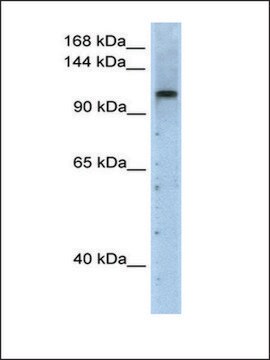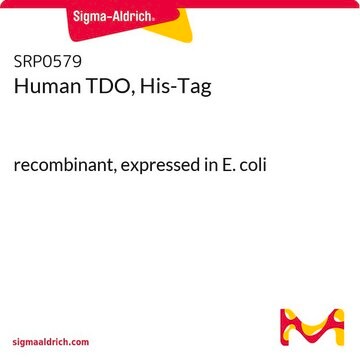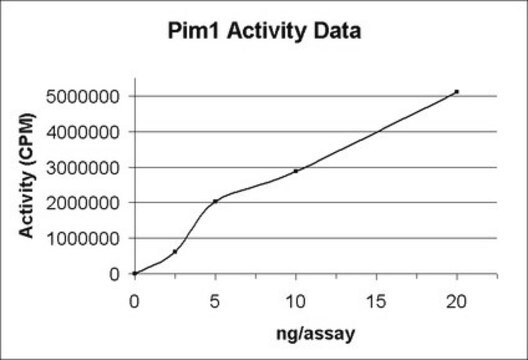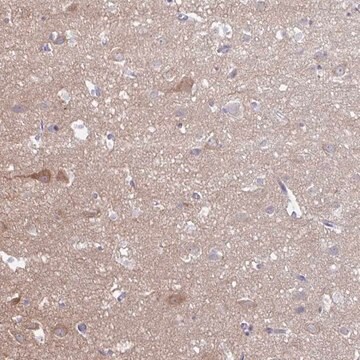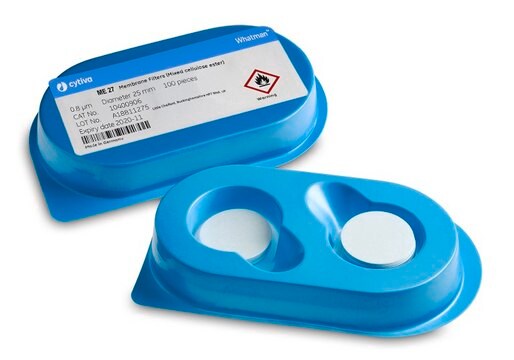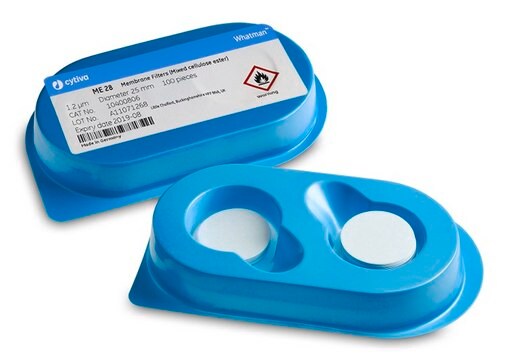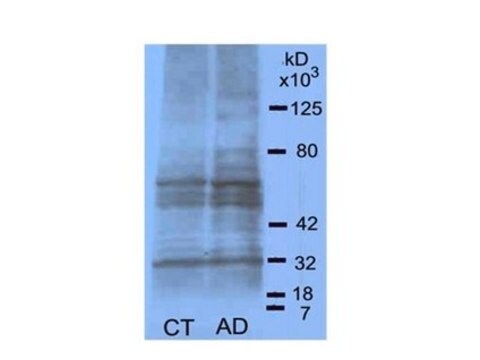SRP5228
PIM3 active, GST tagged from mouse
PRECISIO® Kinase, recombinant, expressed in baculovirus infected Sf9 cells, ≥70% (SDS-PAGE), buffered aqueous glycerol solution
Synonym(s):
Kid1, MGC27707, MGC37517
Sign Into View Organizational & Contract Pricing
All Photos(2)
About This Item
UNSPSC Code:
12352200
NACRES:
NA.32
Recommended Products
recombinant
expressed in baculovirus infected Sf9 cells
product line
PRECISIO® Kinase
assay
≥70% (SDS-PAGE)
form
buffered aqueous glycerol solution
specific activity
667-903 nmol/min·mg
mol wt
~63 kDa
NCBI accession no.
shipped in
dry ice
storage temp.
−70°C
Gene Information
mouse ... Pim3(223775)
General description
PIM3 or pim-3 oncogene belongs to a family of protooncogenes that encode serine/threonine protein kinases. Pim-3 expressed in hepatocellular carcinoma development and plays a main role in the proliferation of human hepatoma cell lines. Pim-3 also expressed in human pancreatic cancer cell and phosphorylates BAD to block Bad-mediated apoptosis in human pancreatic cancer cell lines.
Physical form
Supplied in 50mM Tris-HCl, pH 7.5, 150mM NaCl, 10mM glutathione, 0.1mM EDTA, 0.25mM DTT, 0.1mM PMSF, 25% glycerol.
Preparation Note
after opening, aliquot into smaller quantities and store at -70 °C. Avoid repeating handling and multiple freeze/thaw cycles
Legal Information
PRECISIO is a registered trademark of Merck KGaA, Darmstadt, Germany
Storage Class
10 - Combustible liquids
wgk_germany
WGK 1
Choose from one of the most recent versions:
Certificates of Analysis (COA)
Lot/Batch Number
Don't see the Right Version?
If you require a particular version, you can look up a specific certificate by the Lot or Batch number.
Already Own This Product?
Find documentation for the products that you have recently purchased in the Document Library.
Ying-Yi Li et al.
Cancer research, 66(13), 6741-6747 (2006-07-05)
Pancreatic cancer still remains a serious health problem with <5% 5-year survival rate for all stages. To develop an effective treatment, it is necessary to identify a target molecule that is crucially involved in pancreatic tumor growth. We previously observed
Chifumi Fujii et al.
International journal of cancer, 114(2), 209-218 (2004-11-13)
Most cases of human hepatocellular carcinoma develop after persistent chronic infection with human hepatitis B virus or hepatitis C virus, and host responses are presumed to have major roles in this process. To recapitulate this process, we have developed the
Harald Mikkers et al.
Molecular and cellular biology, 24(13), 6104-6115 (2004-06-17)
The Pim family of proto-oncogenes encodes a distinct class of serine/threonine kinases consisting of PIM1, PIM2, and PIM3. Although the Pim genes are evolutionarily highly conserved, the contribution of PIM proteins to mammalian development is unclear. PIM1-deficient mice were previously
Our team of scientists has experience in all areas of research including Life Science, Material Science, Chemical Synthesis, Chromatography, Analytical and many others.
Contact Technical Service